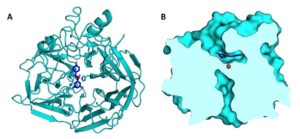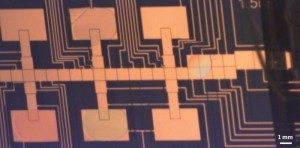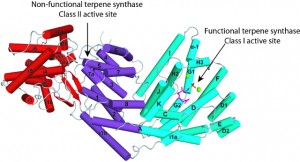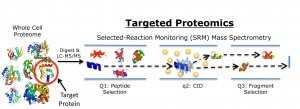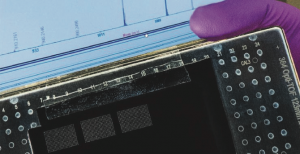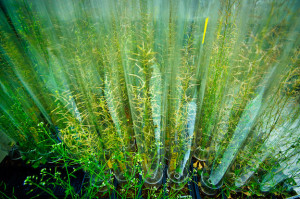Research Focus
The development of new technologies to facilitate and accelerate the conversion of biomass to biofuels, including high throughput laboratory technologies and computational and information systems. The primary goals of the Technology Division are to provide a suite of technologies to support scientific discovery in all of the JBEI Divisions.
Technology Division Projects
- Automating, parallelizing and miniaturizing procedures that are currently throughput-limiting in biofuels research
- Developing new microfluidic, array and proteomics technologies for enzyme and protein characterization for biofuels research
- High resolution imaging of plant cell walls using electron microscopy, and structural characterization of biofuels and bioproducts enzymes using X-ray crystallography and cryo-electron microscopy
- Developing informatics systems to support large scale research
Featured Media
Crystallization Screen Created by JBEI Scientists Reaches the Market
Finding Diamonds in the Rough
Microfluidic Device Mixes And Matches DNA For Synthetic Biology
Cold Spring Harbor Laboratory Seminar: Synthetic Biology Scalability and Responsible Innovation
Clearing a Potential Road Block to Bisabolane
Starting a New Metabolic Path: JBEI and Berkeley Lab Researchers Develop Technique to Help Metabolic Engineering
JBEI’s Director of Array-Based Assays, Trent Northen, Wins R&D 100 Award
The JBEI GT Collection: A New Resource for Advanced Biofuels Research
Featured Publications
- “The Experiment Data Depot: a web-based software tool for biological experimental data storage, sharing, and visualization.”, ACS Synth Biol. (2017)
- “Production of jet fuel precursor monoterpenoids from engineered Escherichia coli.”, Biotechnol Bioeng. (2017)
- “Structure of aryl O-demethylase offers molecular insight into a catalytic tyrosine-dependent mechanism.”, Proc Natl Acad Sci U S A. (2017)
- “On-chip integration of droplet microfluidics and nanostructure-initiator mass spectrometry for enzyme screening.”, Lab Chip (2017)
- “Non-invasive imaging of cellulose microfibril orientation within plant cell walls by polarized Raman microspectroscopy.”, Biotechnol Bioeng. (2016)
- “A Droplet Microfluidic Platform for Automating Genetic Engineering.”, ACS Synthetic Biology (2016)
- “Structure and mechanism of NOV1, a resveratrol-cleaving dioxygenase.”, Proc Natl Acad Sci U S A. (2016)
- “Structural and Biochemical Characterization of the Early and Late Enzymes in the Lignin β-aryl Ether Cleavage Pathway from Sphingobium sp SYK-6.”, J Biol Chem. (2016)
- “Exploiting The Substrate Promiscuity of Hydroxycinnamoyl-CoA:Shikimate Hydroxycinnamoyl Transferase to Reduce Lignin.”, Plant Cell Physiol. (2016)
- “Principal component analysis of proteomics (PCAP) as a tool to direct metabolic engineering.”, Metab Eng. (2015)
- “A Versatile Microfluidic Device for Automating Synthetic Biology.”, ACS Synth Biol. (2015)
- “Development of a High Throughput Platform for Screening Glycoside Hydrolases Based on Oxime-NIMS.”, Front Bioeng Biotechnol (2015)
- “Structural basis of stereospecificity in the bacterial enzymatic cleavage of β-aryl ether bonds in lignin.”, J Biol Chem. (2015)
- “Multifunctional cellulase catalysis targeted by fusion to different carbohydrate-binding modules.”, Biotechnol Biofuels (2015)


